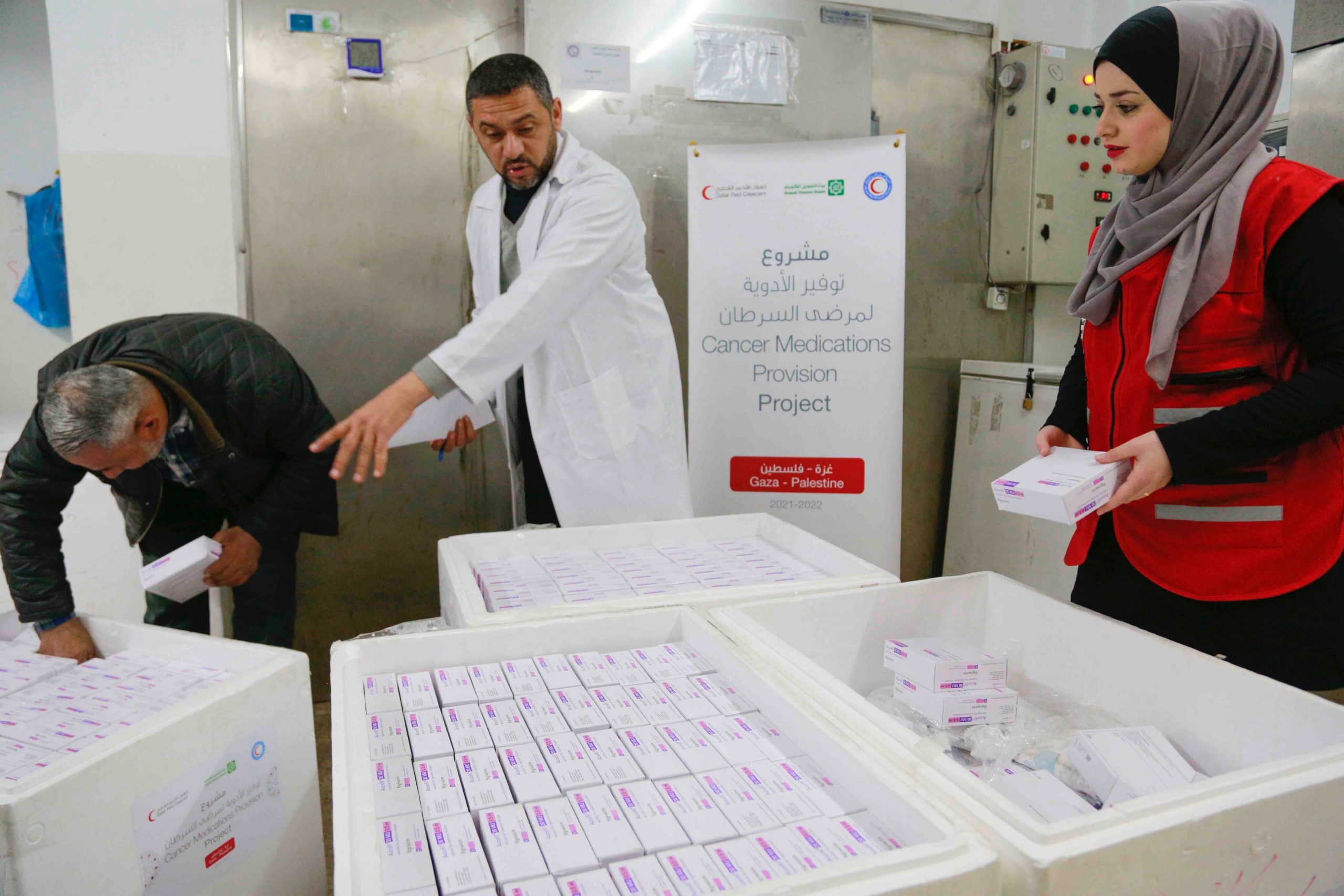In addition to the arduous fight Palestinian cancer patients have with the disease, there is also the uphill struggle of receiving medication under the apartheid state.
The Qatar Red Crescent (QRCS) has collaborated with its Kuwaiti counterpart (KRCS) to provide cancer patients in the besieged Gaza strip with medical treatment.
The project managed to decrease the shortage of medications in the besieged strip from 53% in 2021 to 44% this year.
“The rate of the shortage was down to 44%, with much-needed drugs and pain relievers secured to ensure the continuity of life-saving medical services for the patients,” said Dr Zikri Abu Qamar, Assistant Director-General of Pharmacy at the Ministry of Health (MOH) of Gaza.
The $800,000 project is co-funded by QRCS and KRCS to provide 8,644 patients battling with the disease with adequate medical treatment. Both agencies would also be able to ease the heavy burden on the health service providers.
With Gaza being the world’s largest open-air prison, the medical sector in the city would be able to obtain enough medications for the patients in need of treatment.
The project provides a total of 19 types of chemotherapy, hormonal, and analgesic drugs, ensuring patients do not need to get treatment abroad. Radiotherapy would be considered by Israel as “dual use items”, which Gaza cannot import under the blockade.
“You can imagine how I felt my life stopping once I knew I had breast cancer,” said Iman, a 39 year-old cancer patient in Gaza.
Iman has been amongst the recipients of chemotherapy at the Palestine-Turkey Friendship Hospital, southern Gaza City, under the joint project.
“Just one moment later, I decided to fight hard to overcome the disease. I am a math teacher, and I have my family responsibilities. I cannot let my kids down now,” she said.
An uphill struggle
The population of the Palestinian city has been living under the harsh air, land and sea siege imposed by Israel in 2007. In addition to the arduous fight Palestinian cancer patients have with the disease, there is also the uphill struggle of receiving medication under the apartheid state.
The lack of medications has forced cancer patients to take the risk to travel long distances in the middle of the Covid-19 pandemic to access treatment.
The patients also need permits to enter other territories outside of Gaza and the crossings are controlled by the zionist state. Those permits can take weeks and months, putting the lives of thousands of patients at risk.
In addition to the long journey to accessing medication, patients are subjected to humiliating interrogations at Israeli checkpoints.
According to Physicians for Human Rights, two children died in 2020 whilst waiting for a permit to get an open-heart surgery.
During the same year, more patients struggled after Palestinian President Mahmoud Abbas suspended the Palestinian Authority (PA)’s coordination mechanism with Israel.
Parents’ permits would often get rejected and they would have to make their sick children travel outside of Gaza with elderly relatives instead, given that their chances of obtaining the document is higher.
In 2020, two out of every five children who left Gaza received the painful cancer treatment without their parents being around. This would impact the patients’ mental wellbeing as they undergo the treatment.
According to the World Health Organization (WHO), the survival rate of women in Gaza diagnosed with breast cancer is low. Only 65% of women with breast cancer survive five years after diagnosis.







